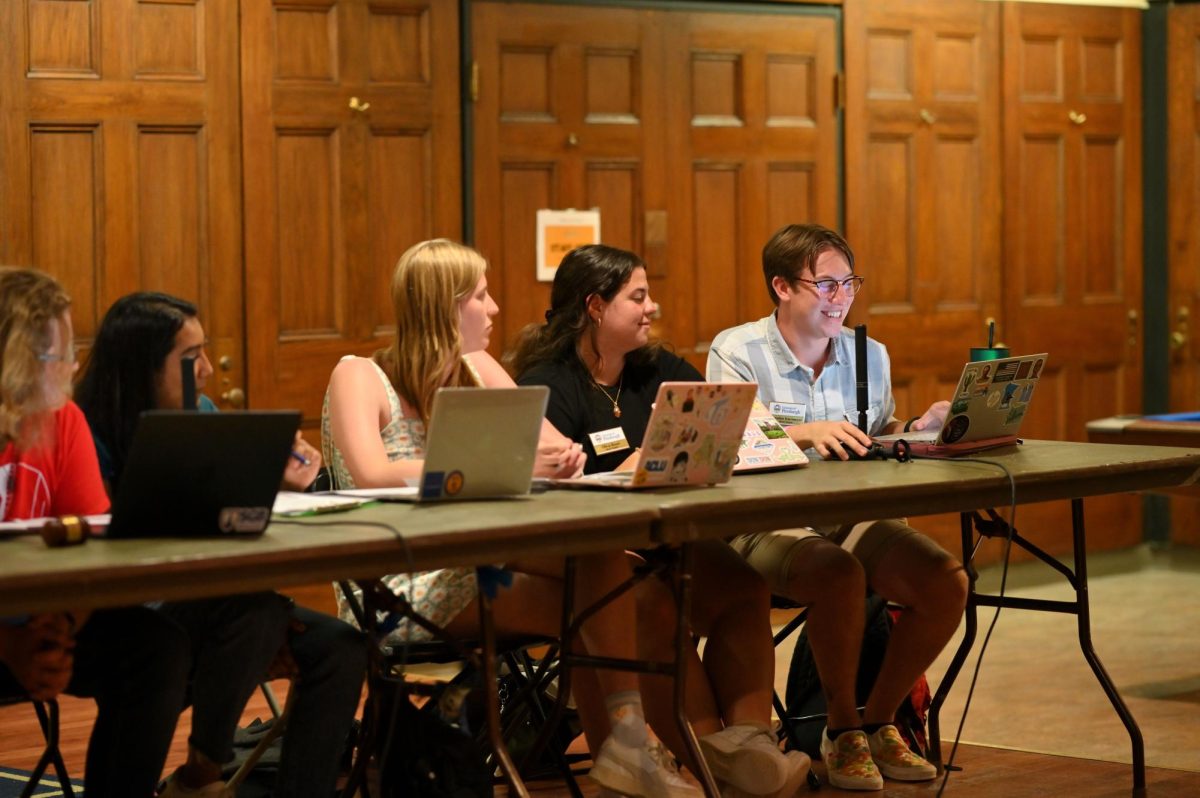A new Student Government Board initiative may allow for students to see class syllabi prior to class registration.
Grace Bohl, a junior neuroscience major and academic chair of SGB, is drafting an initiative that will require professors to post their syllabus during the class registration period on PeopleSoft or departmental websites in the hopes that it will provide students with more information when choosing classes.
“A lot of times what [SGB] hear[s] in terms of academic difficulties is lack of access to information, especially when people are choosing classes,” Bohl said, referring to feedback SGB has received from students.
The open syllabus initiative, by Bohl, would allow students to see the syllabus of a class before they decide to take it. Syllabi would include possible readings, exam structure and papers, and this policy would enable students to choose classes based on their personal learning styles and interests.
“The information that [students] get is based on peers or people they know from clubs, or it’s a very informal source, and I feel like that’s just the case with a lot of the resources that are available at Pitt,” Bohl said. “There’s a lot of opportunity out there, but it’s not always super well publicized.”
About two weeks ago, SGB published a survey asking students what factors they consider when choosing their classes. Bohl said she plans on using this data in her proposal for the open syllabus policy. However, she only has 50 responses.
“We’re aiming for around two to three hundred responses,” Bohl said, “So [we’re] really working on publicizing [the survey] more so that we can have enough students fill it out and it’s a good representation of the student body’s opinion.”
Bohl said she has also spoken to student government at West Virginia University and the University of North Carolina, who are both working on similar programs, to brainstorm ideas for the policy.
Bohl said an open syllabus policy would most likely involve professors posting a syllabus draft on sites such as PeopleSoft, excluding due dates and other information specific to a semester or group of students.
Olivia Sinciline, a sophomore communications science major, said she has had experiences where she signed up for a class thinking it was in a different learning style than she was prepared for.
“I thought one class I took was going to be more discussion-based, but it ended up [being a lecture],” Sinciline said, referring to a history class she took last year.
Sinciline added that she supports the potential new policy since it could prevent this situation from happening to other students.
“I think it would be helpful for students who are curious about what they’re getting into whenever they sign up for a class,” she said.
Michael Bridges, executive director for the University Center for Teaching and Learning, said as of now, “practices regarding the sharing of syllabi vary by department,” citing the physics and astronomy departments as examples with open syllabus requirements.
“Faculty members have always had the opportunity to provide syllabi, course descriptions or course outlines to students before registration,” Bridges said. “There are a variety of reasons why some may choose not to post before the beginning of the semester.”
Bridges said some professors prefer to administer a survey at the start of the class, and based on students’ responses, they adjust the syllabus to better support the students in the class.
Psychology professor Melinda Ciccocioppo said she agreed that professors have good reasons for not posting syllabi before the start of the semester. She explained that many professors don’t know what course they are teaching until after registration, and even if they do, they are probably still working on the syllabus up until the first day of class.
“I certainly understand why students would find it helpful to have that information in advance, but also there are circumstances that make it very difficult for faculty to be able to commit to that,” Ciccocioppo said.
Bohl said she will submit the proposal once she has gathered enough information from Pitt students and other colleges.
“The goal is that students have more transparency [around] what material is covered and how that material is conveyed,” Bohl said. “And what assessment types are, like a test or an essay, just so they have a better idea of what they’re getting into.”



